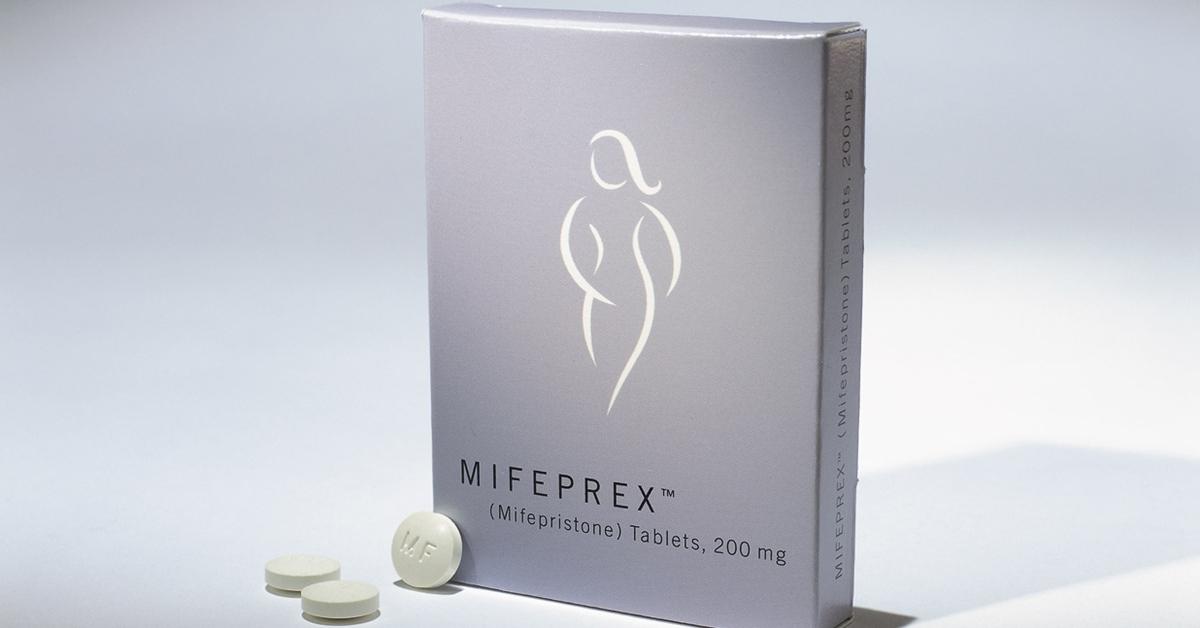Overturning Roe v. Wade Could Impact Abortion Pill Companies
Currently, many abortions are done with a pill. Here’s more information on the abortion pill and the companies that produce it. Overturning Roe v. Wade would impact the companies.
May 3 2022, Published 1:11 p.m. ET

The debate over abortion is heating up yet again after a draft Supreme Court opinion to overturn Roe v. Wade was leaked to the press. Things have changed a bit since the landmark decision in 1973. Gone are the days of back-alley abortions and coat hangers. Currently, many abortions are done with a pill. Here’s more information about the abortion pill and the companies that produce it.
What companies make the abortion pill?
Medical abortions, which are done with an abortion pill, now account for over half of all abortions in the U.S., according to research from the Guttmacher Institute, a research organization focused on advancing sexual and reproductive rights.

Although the abortion pill has been used in Europe since the 1980s, it wasn’t approved for use in the U.S. until 2000. At the time, Danco Laboratories was the only company making the abortion pill known as Mifeprex or RU-486. In 2019, a second company, GenBioPro, Inc., got FDA approval for a generic version of the abortion pill.
How does the abortion pill work?
The abortion pill actually consists of two pills — mifepristone (Mifeprex) and misoprostol. To end a pregnancy, a woman must first take mifepristone, which blocks her body’s production of the hormone progesterone needed for an embryo to grow.
The second pill, misoprostol, should be taken 24–48 hours after the first pill. This pill triggers a sort of early miscarriage where the woman experiences a heavy period and cramping.
How effective is the abortion pill?
When the abortion pills are taken within eight weeks of pregnancy, they are 94 percent–98 percent effective in terminating a pregnancy, reports Planned Parenthood. The pill is less effective if the pregnancy is farther along. For women who are 10 weeks pregnant, the abortion pill is only about 87 percent effective, and they may need an extra dose of the medication to terminate the pregnancy. The abortion pill isn't recommended for women who are past 10 weeks in their pregnancy.
Women who use the abortion pill are encouraged to visit their healthcare provider for a follow-up appointment seven to 14 days after taking the medications.
The FDA recently lifted restrictions on the abortion pill.
In December 2021, the FDA lifted restrictions on the abortion pill to make it more accessible. The move enables physicians to prescribe the abortion pill through telemedicine appointments and mail the medication directly to the patient. Until then, you needed an in-person appointment with a physician to receive the pills.
Several states are poised to ban access to abortions.
However, several states have banned telemedicine appointments for medical abortions. According to the Kaiser Family Foundation, 19 states have policies restricting the use of telehealth for medical abortions. Six of those states have an outright ban on telehealth visits for medical abortions, while 14 states require medical abortions to be done with a clinician physically present.
If Roe v. Wade is overturned, there are about 26 states ready and waiting to ban abortions, according to an analysis by the Guttmacher Institute.
